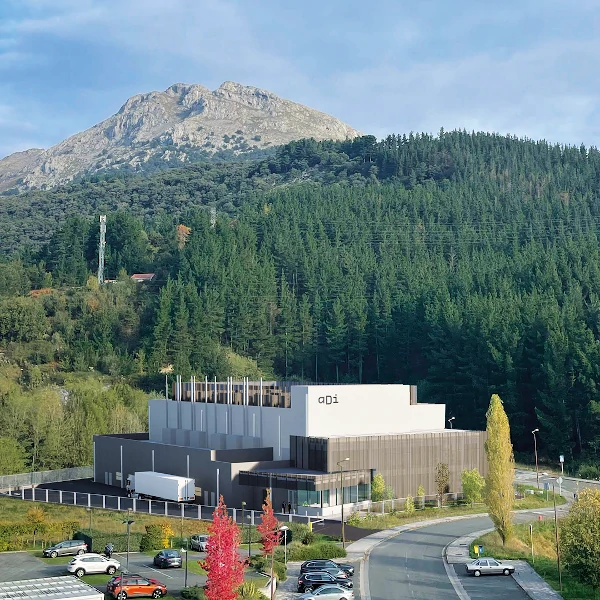BDIH has supported over 270 companies in developing 450 projects through a network of more than 270 technology assets and services

The Spri program BDIH Konexio offers Basque industrial companies access to more than 270 technological assets and services through the Basque Digital Innovation Hub (BDIH), a network of infrastructures designed to provide them with the digital and sustainable capabilities required by today’s market. Access to these solutions and infrastructures is facilitated via technical guidance to create action plans or proof-of-concept tests that help companies boost their technology absorption capacity. Over the past five years, BDIH has enabled more than 270 companies to test potential digital and sustainable solutions through over 450 projects. In 2024, the program received 160 applications, resulting in 124 approved projects. The sixth call will be published in the coming weeks, continuing its mission to help Basque industrial firms access, connect with, and understand the asset catalog.
BDIH’s assets and services are organized into nine major technology nodes, spanning AI, additive manufacturing, advanced materials, and digital electric grids. Of the supported projects, 128 were in the Advanced Materials node; 85 in Smart Machines; 66 in Additive Manufacturing; 64 in Flexible and Collaborative Robotics; 36 in Medical Devices and Digital Health; 25 in Cybersecurity; and 9 in Digital Electrical Grids.
THE ADDITIVE MANUFACTURING NODE IS ONE OF THE FASTESTGROWING IN RECENT YEARS
Additive Manufacturing is one of the fastest-growing nodes in terms of applications, as sets, and business interest, due largely to its rapid evolution. Notable projects in this area include friction welding for rail bed manufacturing and the integration of new materials into 3D printing processes. Other developments include improvements to tailstocks using LMD technologies; surface modification studies using MJF technologies; development of metrology software for pre-scanned parts; additive manufacturing of a refractory plate prototype for a sliding valve; and management of complex industrial data. BDIH’s deep connection to the Basque industrial ecosystem is evident in its catalog, which is closely aligned with the business community’s real needs and challenges. Its partners include universities, vocational training centers, and the technology centers grouped under the Basque Research & Technology Alliance (BRTA). BDIH is also internationally connected to other European hubs and supported by regional public institutions.

The Euskadi Atlantic Data Infrastructure – ADI project — aimed at building a world-class network of data centers in the Basque Country — is becoming a reality with the completion of the first phase of the Abanto facility and the launch of a second one in Mondragon. Behind the initiative are the Basque Government, Teknei, Dominion, Euskaltel, Gertek, Kutxabank, Iberdrola, Mondragon, Seed Capital Bizkaia, and Seed Gipuzkoa. Together, they aim to equip companies and institutions with advanced cloud storage capabilities under the highest standards of security and proximity, in support of digital and technological transformation. This infrastructure will foster a digital business ecosystem, generating employment, wealth, and technological progress.

The project is part of the “Euskadi 2025 Transformation Strategy” approved by the Basque Government in 2021, which underscores the strategic importance of data management and sovereignty for any organization. The first of two modules planned for the Abanto Data Center has already been completed. The facility, with a 25 million investment, will create 30 jobs. Located on the Abanto Campus of the Bizkaia Science and Technology Park, it lies just 10 kilometers from the landing point of the Marea and Grace Hopper transoceanic cables — ensuring energy and connectivity supply. It will also have access to multiple local fiber-optic providers. The center will house up to 2MW of IT equipment and offer advanced infrastructure, platform, and cloud application services for key sectors like energy, manufacturing, healthcare, and finance. It will enable companies to adopt cloud-dependent technologies such as artificial intelligence and the Internet of Things (IoT).
In parallel, the ADI Mondragon Data Center is now under development and scheduled to be operational by late 2026. It will be located in the Garaia Technology Park in Arrasate- Mondragon. The design and construction will be led by Krean. The new facility will accommodate up to 3MW of IT equipment across two server rooms, which will be fitted out in phases depending on service demand. The total building area will exceed 5,000 m². The network will be completed with the addition of another center in Álava.

Todos los derechos reservados Industria y Comunicación S.A.